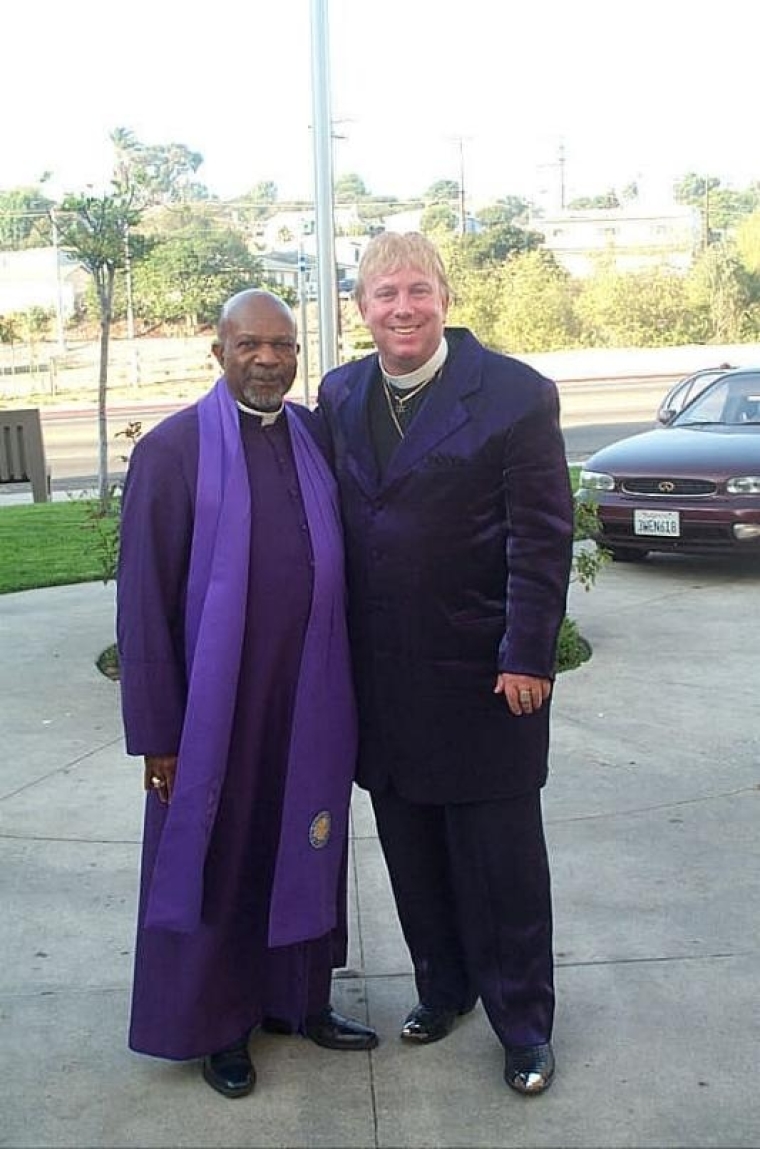
Johnny Lee Clary, 50, was ordained last month to serve within the six-million-member Church of God in Christ and hopes to educate people on the destructiveness of division and inequality.
"When the day comes for me to make my journey home, I hope to be remembered not as the former national leader of the Klan, but as a man who saw wrong and tried to right it, to build a better world to leave for our children, both black and white," Clary says.
Though the historically black denomination has a few white ministers, Bishop George D. McKinney, who ordained Clary last month, told the Tulsa World "it's not every day that we get a former klansman."
"We're making history," added Clary, who currently lives in Miami, Oklahoma.
"We're building a bridge of racial reconciliation, and what better way to do that than with a former KKK leader ministering in a black church that boasts over six million members?" he told the Oklahoman.
"I hope I can have a great impact."
Clary had joined the KKK at the age of 14 after his father committed suicide and his mother abandoned him. And for 16 years, Clary advanced in the white supremacist organization, all the way up to becoming an imperial wizard.
After going through a time of torment, anger, and disgust, however, Clary left the KKK and struggled to make an honest living. He turned to God after feelings of guilt led him to depression and on the verge of committing suicide.
He has since become a guest speaker at numerous schools and churches across the nation, and lectures on occasion for the FBI and other law enforcement agencies, educating officers on the mindset of white supremacists and how to best fight against domestic terrorism.
"Yes I made mistakes in life, and a person cannot go back in time and change the past, but he can certainly do something about today in order to build a better tomorrow," Clary says today.
Though Clary will likely continue to travel as a guest speaker, the California-born minister hopes to one day oversee his own Church of God in Christ congregation.
In any case, it's clear what Clary intends to do with his life.
"I believe I have something to contribute in the area of racial reconciliation," he says.
"I'm going to spend the rest of my life building bridges and bringing people together."